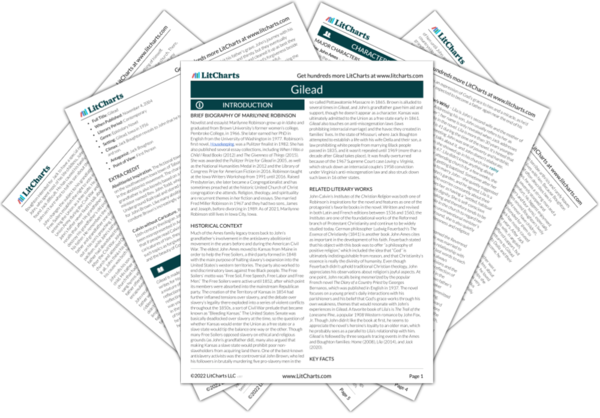Throughout John’s letter, he moves from one subject to another in a stream-of-consciousness way. Talking about home in general leads him to reflect on this house in particular. It’s a parsonage, or a house that a church provides for its minister and, usually, the minister’s family. This confirms what John’s earlier talk about caring for people on their deathbed implied: that he’s a Christian minister. John, however, seems to have spent many years in this parsonage living alone. Since then, something has changed—and his view of the world has changed with it.
